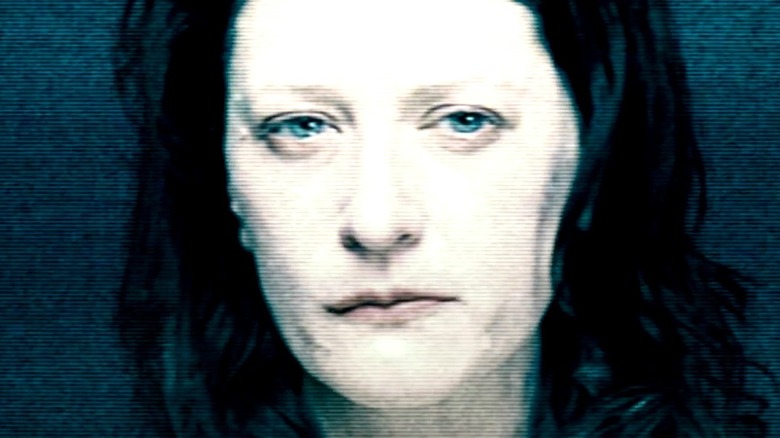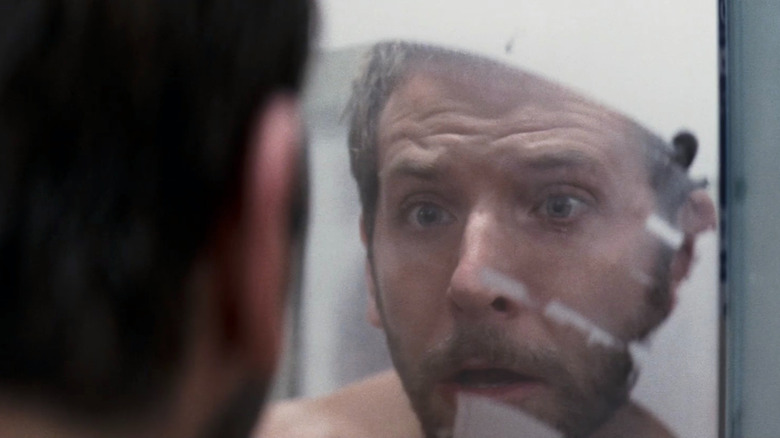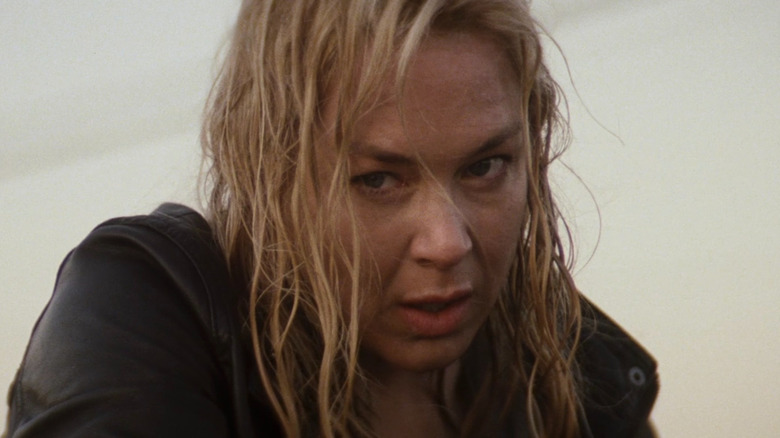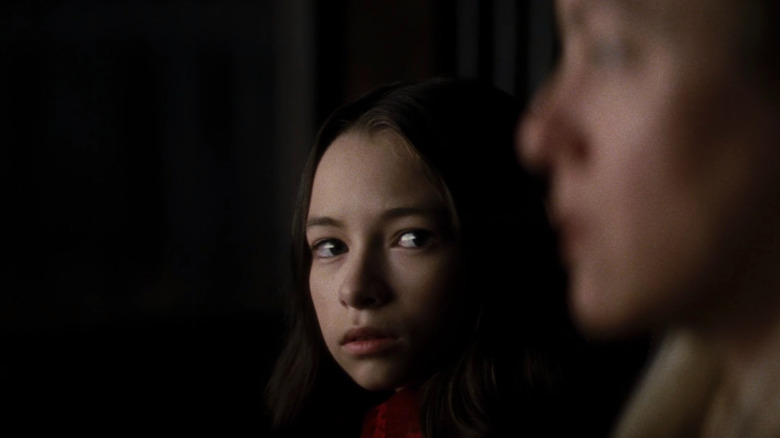The Ending Of Case 39 Explained
From director Christian Alvart and screenwriter Roy Wright comes the 2009 supernatural horror film "Case 39." Starring Renée Zellweger, Jodelle Ferland, Ian McShane, and Bradley Cooper (a far cry from his role as Rocket Raccoon in "Guardians of the Galaxy"), the film tells the story of social worker Emily Jenkins (Zellweger), who takes in a young girl from an abusive situation named Lilith (Ferland). However, Lilith's case is not what it seems, and soon, strange and deadly events begin happening to those involved with the girl. "Case 39" did not do especially well at the box office, making a little more than $28 million (via Box Office Mojo). It also fared equally poorly with critics. With a measly 21% on Rotten Tomatoes, the film is often considered to be a largely unoriginal venture, with The Austin Chronicle calling it, "Neither so awful as to be enjoyable nor eerily artful enough to be anything other than a snoozy also-ran."
While its premise might not veer too far off from the template of similar horror films that deal with malevolent children as their subject matter, that's not to say that "Case 39" is without merit. For what it might lack in originality, the film makes up for in fascinating execution, where the story itself uses its ideas to reveal quite a bit about its characters and the world around them. By the film's end, the ideas build to create a memorable finale. Now it's time we take a look at all the moving parts within "Case 39" and see what makes its ending have such an impact.
Feeding on fear
After having rescued Lilith from an abusive family situation, Emily takes custody of the child while social services works on finding her a foster home. Not long after, strange events start to occur. One of the other children Emily is dealing with, Diego (Alexander Conti), kills his parents one night, much to everyone's surprise. Despite his own behavioral issues, Diego has been a mostly good-hearted child up to that point and is incredibly remorseful for what he's done. Even more concerning is that Diego received a call from Emily's house right before the murders, but the call didn't come from Emily herself.
An equally atrocious and even more bizarre incident occurs when Emily's close work friend, Doug (Bradley Cooper), kills himself when a swarm of angry hornets starts attacking him in his bathroom. The swarm is strange enough as it is, but what makes Doug's death even more peculiar is that he had recently told Lilith about his fear of hornets, which stems from his childhood. From this point, it's clear that there is something all too disturbing going on that Lilith appears to be at the center of. All of the people involved in these horrifying events have a specific fear — Doug was afraid of hornets, while Diego feared upsetting his family. This particular dynamic amplifies the horror of having our fears exploited and used against us, as well as the costs that can come with revealing too much about ourselves to the wrong people.
Breaking the cycle, but at what cost?
Emily starts to become more untrustworthy of Lilith, so she investigates her parents, who are being held in a facility after they tried to kill the girl. They tell Emily that Lilith is, in fact, a demon who feeds on emotions, and it becomes clear that she will feed off of Emily's kindness until it is run dry. Although Emily is resistant to the idea, she soon realizes that the only way to prevent more deaths is to kill Lilith. After a failed attempt to burn her along with the house, Emily drives the two of them into a lake. Emily is able to get free of the car, while Lilith is trapped inside as it sinks to the bottom.
There are a few different implications to this ending. While Emily does take out Lilith and stop her reign of terror, Emily's own fate hangs in the balance. With many of Lilith's tortuous methods being illusions that only her victims see, it's possible that Emily will have a hard time explaining exactly why she left the girl to die in her car, especially given that Lilith's new foster family was ready to take her in not too long before the ending. As much as viewers no doubt want to imagine that Emily's ordeal is over, it seems likely that she'll face scrutiny for the child's death — in fact, an alternate ending to the movie shows Lilith being rescued from the car and Emily being sent to prison for attempted murder. Regardless, in taking this heavy burden on her shoulders, Emily has not only freed the world of Lilith's terror, but also freed herself of something greater.
Childhood nightmares made into reality
So why does Lilith go after Emily? While her parents do explain that Lilith seeks to feed off of Emily's kindness, that reasoning seems a bit one-note — there are plenty of kind individuals who would have more than likely taken the child in. What makes Emily so special? Well, that may have a lot to do with her own past.
We learn throughout the film that Emily had a rocky relationship with her mother during her childhood. With Lilith, Emily feels that she can take back the power she lost as a child and right the wrongs of her and her mother's relationship. But Lilith sees things differently. With the film dealing with demons and similar religious ideas, it's not too hard to see more allegorical connections here. Lilith is a figure who appears in several religions, with the name being associated with demons who target children in ancient Babylonian traditions (via Jewish Women's Archive). Other than Lilith's original parents mentioning how their other children died one by one following Lilith's arrival into their family, there's a more metaphorical way to see this.
We could see Lilith as a demon who feeds off of the inner vulnerability of others. Emily and Doug both have fears stemming from their own childhoods and could act as the film's metaphorical children, whose fears are the piece of their upbringing that has remained with them. And with Emily taking out Lilith at the end, despite sacrificing so much in the process, she has effectively won her own battle in standing up for herself and not allowing her past to define who she has become.



